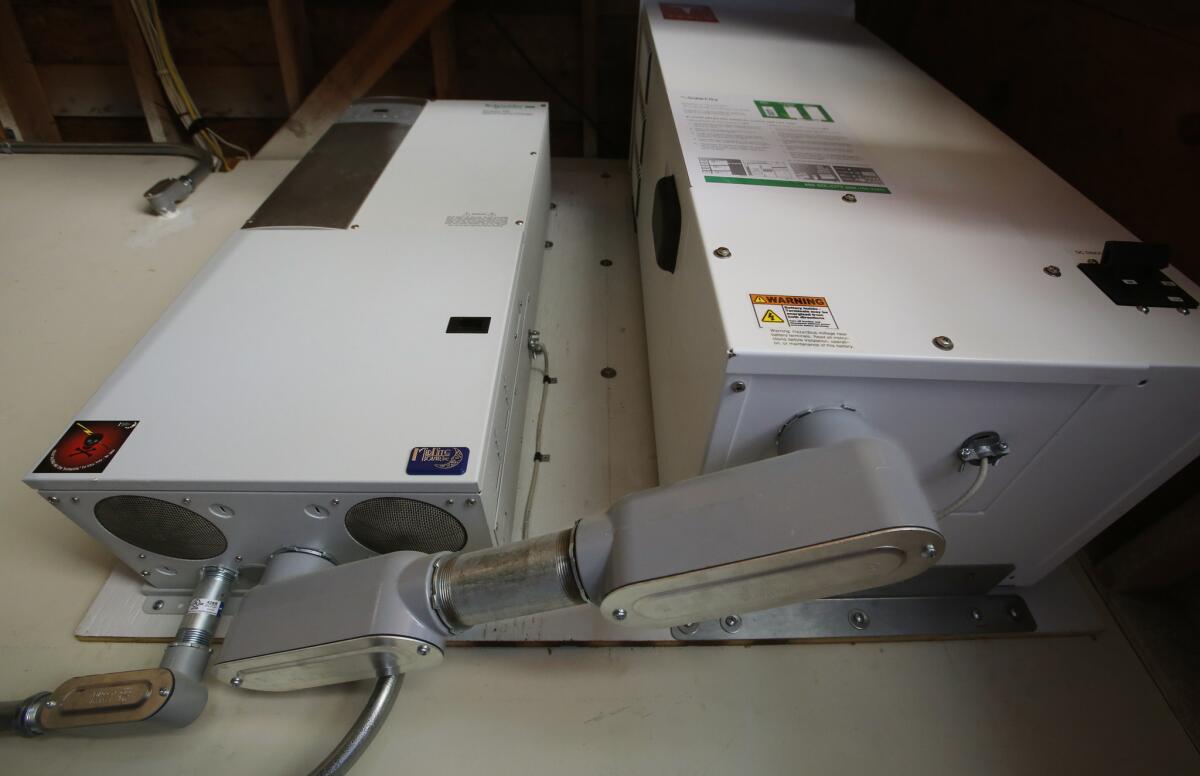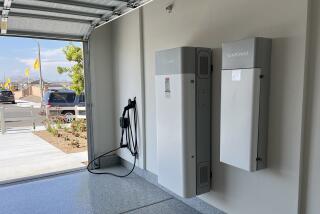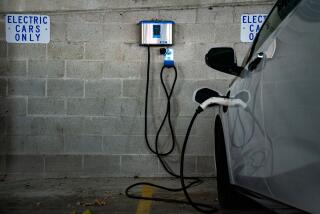Battery-stored electricity could reduce power use and save money, report says

The battery box inside Cassina Tarsia’s Oceanside home stores solar-generated electricity. She had the “microgrid” designed to run her home on stored power in case of a blackout, but reseachers say it could provide more benefits.
- Share via
Utilities would save consumers money and help support the electric grid if the companies tapped unused power stored in existing home and business batteries, according to a report released Thursday by the Rocky Mountain Institute.
The report, titled “The Economics of Battery Energy Storage,” by the nonpartisan, nonprofit organization in Snowmass, Colo., states that most batteries already in use serve only as backup power when other electricity isn’t available.
Instead, the electricity in the batteries could help reduce congestion over power lines as utilities work to send power from various plants during high demand. The battery-stored electricity also could immediately provide support to the grid in an emergency.
And for customers, the batteries could help them better manage their electricity use and reduce their costs. Consumers could tap the stored power during times when electricity costs are high rather than buying from the grid, reducing their electric bills beyond the use of solar panels alone.
“We have assets that could be delivering value to the grid. They’re just sitting there,” said Jesse Morris, one of the authors of the report.
In particular, California already is seeking to employ more energy storage along with increasing use of renewable sources such as solar and wind to help reduce pollution, Morris and co-author Garrett Fitzgerald said.
The mandates from state regulators largely target the utilities, but Morris and Fitzgerald said the existing storage in homes and businesses creates another opportunity for the state, the utilities and consumers.
“Batteries are not valued properly,” Fitzgerald said.
If regulators and utilities fail to consider the benefits of tapping storage systems in homes and businesses, “customers could just defect from the grid,” Morris said.
Morris said the declining cost of battery technology combined with the proliferation of rooftop solar systems could lead more consumers to cut the electric cord as many have done with cable TV.
“They can literally go on their own,” Morris said. “We don’t think that’s the best option. We don’t want the people who have the means to do so, defecting from the grid.”
For more energy news, follow Ivan Penn on Twitter: @ivanlpenn
More to Read
Inside the business of entertainment
The Wide Shot brings you news, analysis and insights on everything from streaming wars to production — and what it all means for the future.
You may occasionally receive promotional content from the Los Angeles Times.











